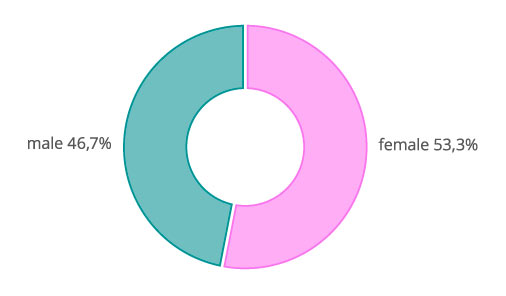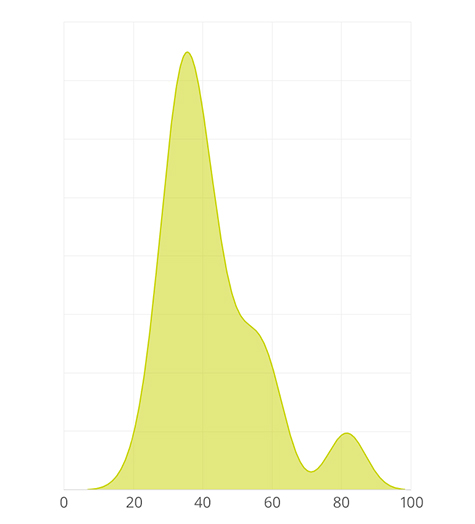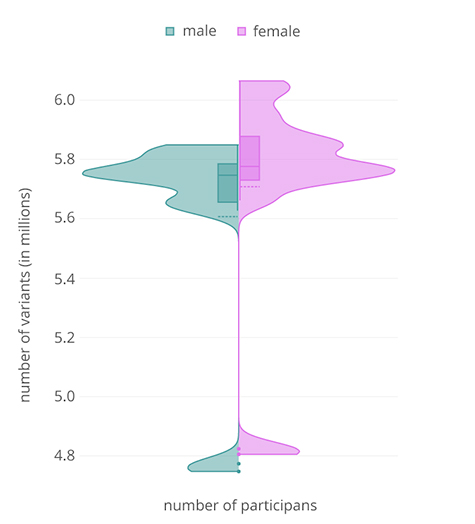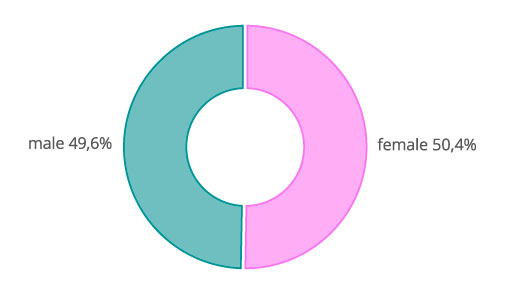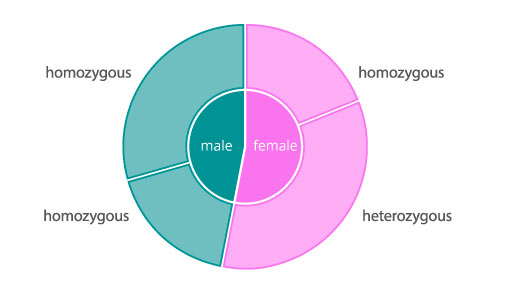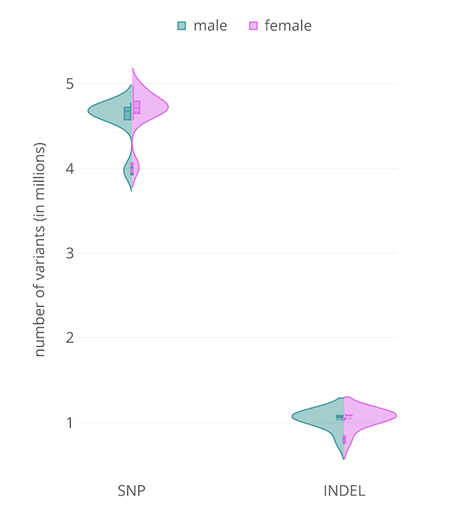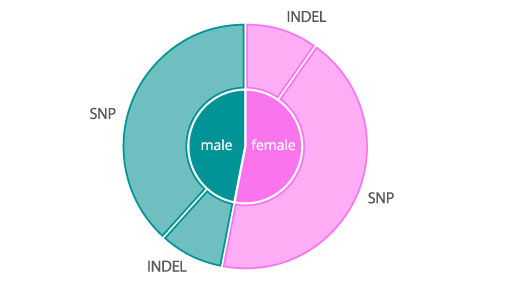
Rare diseases affect one in every 2,000 people in Slovenia. In addition to the problems caused by their disease, people with rare diseases often face a long and arduous journey to a accurate clinical diagnosis. It can take more than 8 years from the first manifestation of the disease to a final diagnosis, during which time they may also receive incorrect diagnoses and treatments, further reducing their quality of life. Genomic diagnostics is one of the most advanced tools that can significantly shorten the path to a final clinical diagnosis. It allows experts to analyse an individual’s entire human genome and, with the help of bioinformatic and artificial intelligence, identify the underlying cause of disease hiding in the millions of different genetic variants that are present in every person, even healthy ones. The success of the diagnostic process is significantly improved by the availability of data on the presence of rare, unique genetic changes in the general healthy population from which the patient comes (e.g., genome variability in the Slovenian healthy population). With this information, experts can more efficiently filter out genetic variants that are unlikely to cause disease, thus improving the reliability of the diagnostic result, reducing the time to a final result and reducing the number of false positives or false negatives.
The Slovenian genome will thus greatly facilitate genomic diagnostics in Slovenia by pooling data on genetic variability from a representative sample of healthy Slovenian residents into a common database. Additionally, it will further expand the genomic information available to all Slovenian and European genomic researchers and diagnosticians by joining European genomic networks. The Clinical Institute for Special Laboratory Diagnostics (CISLD) of the Paediatric Clinic of the University Medical Centre Ljubljana presents summary data for the first group of genomes of healthy Slovenian residents who have voluntarily joined the Slovenian Genome initiative, which has also been approved by the Medical Ethics Committee of the Republic of Slovenia. All Slovenian genomes presented were sequenced and analysed in our own laboratory.
The Ministry of Health of the Republic of Slovenia (MoHRS), together with the Ministry of Education, Science and Sport of the Republic of Slovenia, is participating in the European 1+Million Genomes (1+MG) initiative, which brings together 22 countries from the EU, the UK and Norway, with the aim of having at least 1 million sequenced genomes available by the end of 2022. To achieve these goals, MoHRS, together with a consortium of researchers from the University of Ljubljana Faculty of Medicine, the University Medical Centre Ljubljana and the University of Maribor, has joined the European Genomic Data Infrastructure (GDI) project. The GDI will promote access to genomic data within each participating country and the exchange of genomic data between countries, including legal frameworks, operational procedures and ethical principles. The GDI thus represents a European vision for the integration of genomics into healthcare, which includes Slovenia with the Slovenian Genome.


